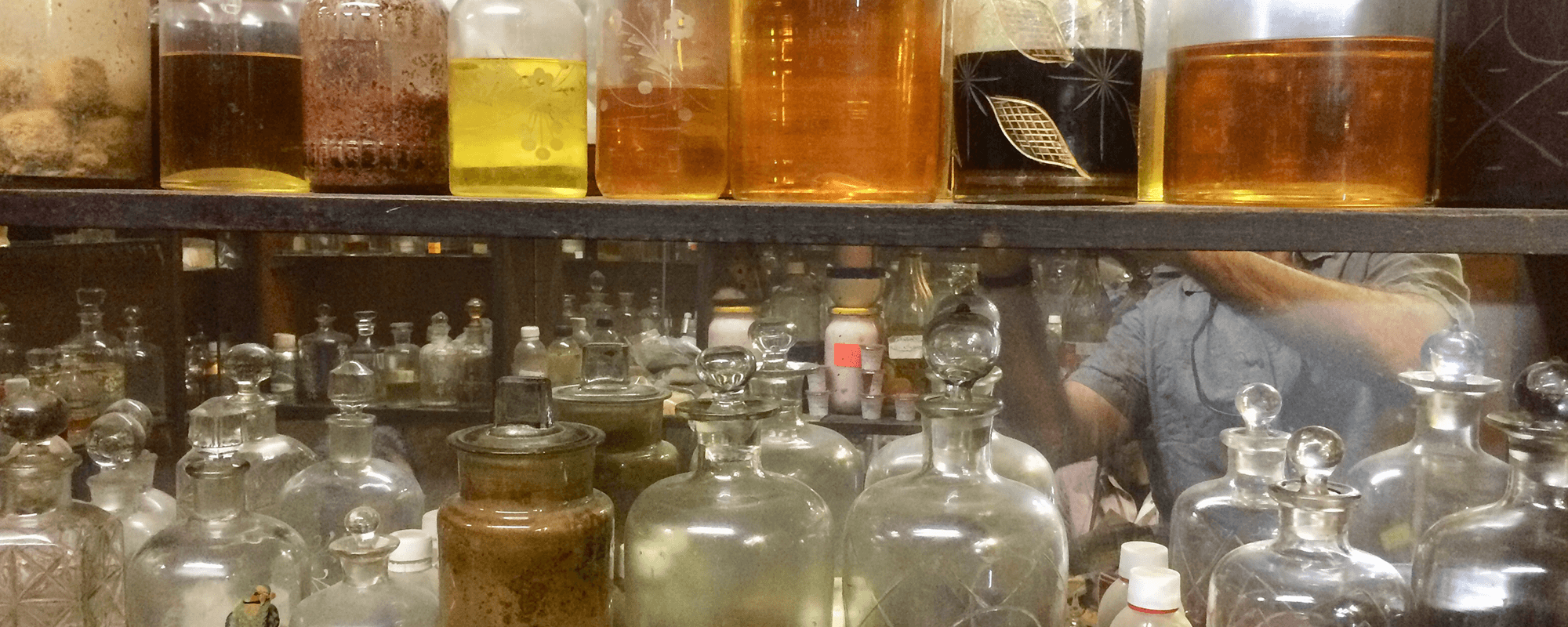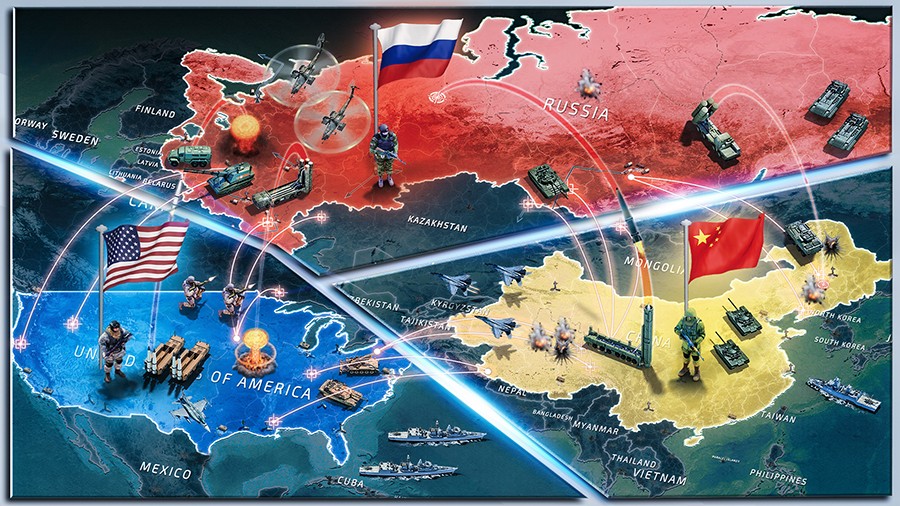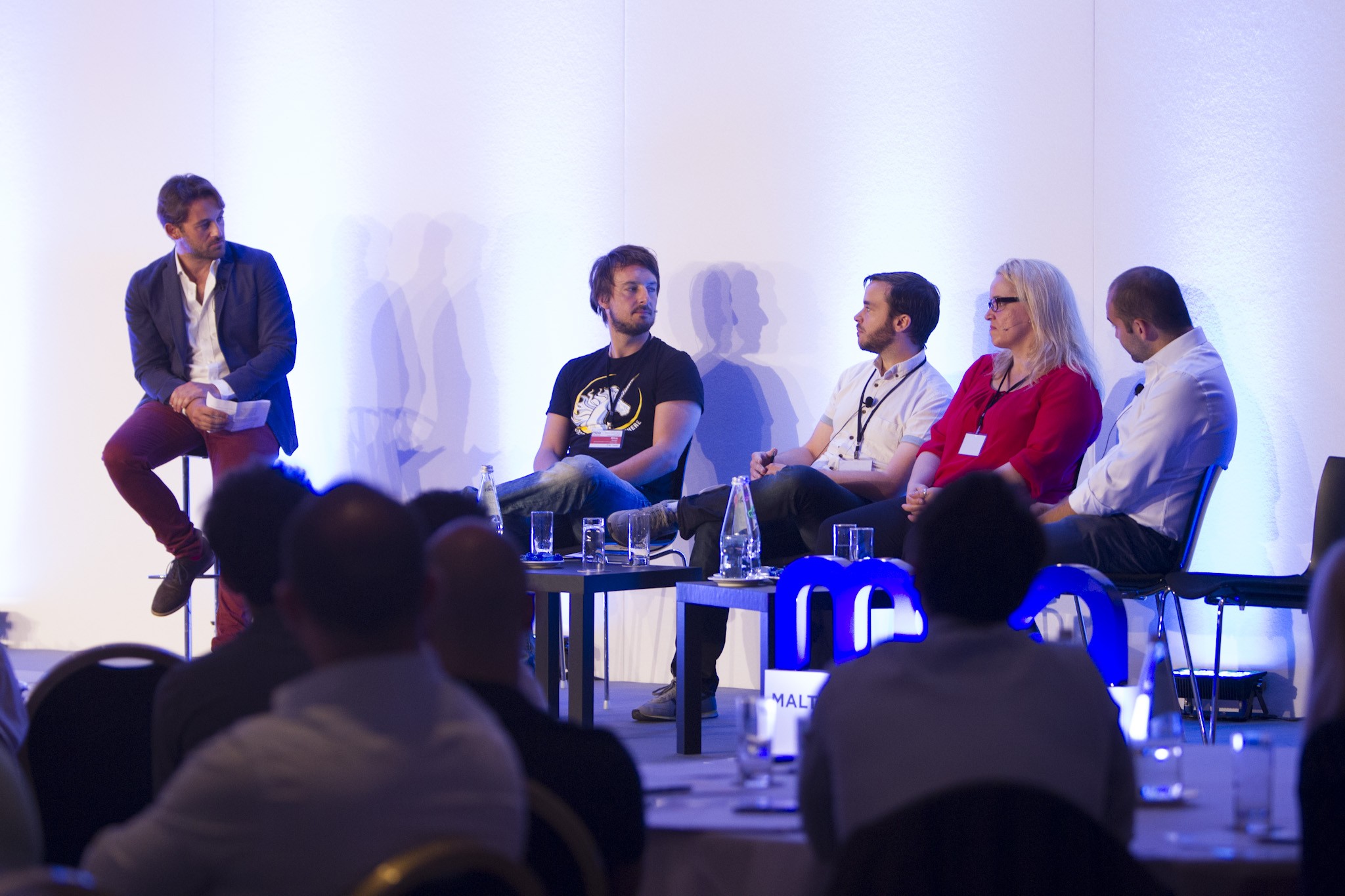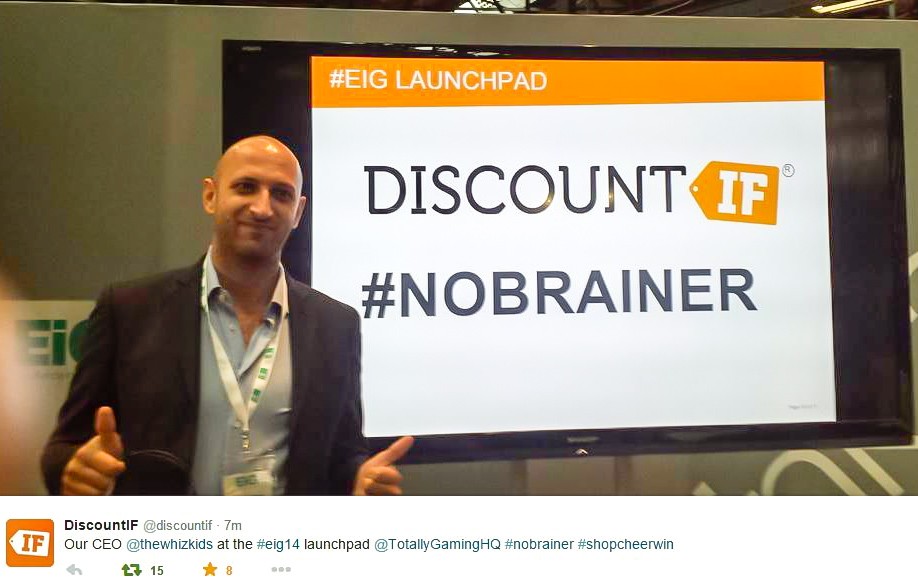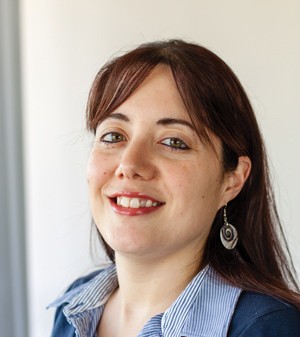Tying loose knots
‘Where there’s a will there’s a way’ is a principle that sparked the idea of a business aiming to bring peace of mind to wedding preparations. Get Hitched co-founders tell Marija Camilleri how they have been growing their start up, how they decided to ‘brexit’ after a brief experiment in the UK market, and what further expansion they have in the pipeline.
Continue readingThe scent collector
After trying her hand as a chef and creative consultant, Marina Fabic discovered her true passion in marrying her refined palate and senses with a never-ending wanderlust to create a series of perfumes. Chris Styles writes.
When you think about the senses that inform your world, would smell come up at the top of the list? Probably not, despite the fact that everyone’s sense of smell is unique.
Unlike other senses, olfactory nerves are hardwired directly into the primitive part of our brains. Smells can trigger the amygdala and hippocampus regions, areas of the brain that processes memory and emotion. This is why the smell of freshly cut grass or rain after a hot afternoon can transport you back to summers long gone. This is the very feeling that Marina Fabic hopes to capture in her scent creations.
Continue readingMaltese Gaming Goes Global
With ever more digital games companies opening their doors in Malta, standing out can be difficult. Dawn Gillies talks to Dorado Games co-founder Simon Dotschuweit to find out how a small company is carving out its niche in an industry of big players.
In 1974, long before the Internet was around, Mazewar introduced the world’s first computer-generated virtual world. With a serial cable to connect computers, friends could play over a network, competing with and against one another for the first time. The Internet now allows thousands of people from opposite sides of the globe to battle it out simultaneously in games set in online virtual worlds like World of Warcraft.
Digital gaming is an industry on the rise, and Malta has seen success after success. It’s a multi-billion dollar enterprise, taking in an astounding $30.7 bn globally in 2017 alone according to Statista. In recent years there has been a surge in free-to-play online games. With so many free games competing for our attention, you might wonder where the money comes from. It may seem counterintuitive, but these free online games sometimes generate higher profits than paid counterparts. Multiplayer PC beat ’em up Dungeon Fighter Online reportedly made an astonishing $1.6 bn in 2017.
With more than 30 digital games companies in Malta alone, it’s a competitive industry to take on. Yet Simon Dotschuweit and Nick Porsche have created Dorado Games, launched real-time grand-strategy game Conflict of Nations, and gained over 400,000 customers.
Porsche and Dotschuweit brought different skills to the table: Dotschuweit came from an IT and technology background, while Porsche gained his experience as creative director for the Battlestar Galactica online game.
Dorado’s Origin Story

Whilst working for the independent creators, publishers, and distributors of digital games Stillfront Group, Dotschuweit was already mulling over some new game ideas. The game engines, platforms, and building blocks were all at his disposal. What he needed was a collaborator. That was when Nick Porsche appeared on the scene.
Porsche and Dotschuweit brought different skills to the table: Dotschuweit came from an IT and technology background, while Porsche gained his experience as creative director for the Battlestar Galactica online game. Their ideas had Stillfront interested. They were in the early stages of building a game, and the endeavour was gaining support. ‘It was going well, and the company wanted to go ahead with it.’ Two years later, Dorado Games was acquired by the Stillfront Group.
When most of us think video games, we immediately think of games consoles. So why choose to create an online game? Or, for that matter, one that’s free?
Dotschuweit says, ‘They’re a lot more fun to do. You have more control. Usually you self-publish. You can do stuff more iteratively. You can release and then improve. With console games, you need a large publishing partner that will take a large portion of the revenue.’ With Dorado constantly striving to improve their online world for players, the ability to continually update was a big draw for them.

The world of online gaming better lends itself to strategy games. With Dotschuweit and Porsche already big fans, their goal was to create a game they wanted to play. Their business model is also better suited to online gaming than consoles. ‘It’s free to play, so we incentivise players to pay for extra features, which doesn’t work well on console.’ This is where the money comes from. Players pay to construct buildings or train their troops more quickly, giving them an advantage over the competition.
But Stillfront’s acquisition of Dorado meant it was decision time for Dotschuweit. He had to choose between keeping his comfortable job with Stillfront, or taking on a new challenge in the startup world. Living in China with his family at the time, the ramifications of that decision were huge. Porsche was already in Malta, incentivised by the Maltese government’s support of new businesses. In the end, Dotschuweit felt the opportunity to join forces was too great to pass up. He made the leap.
The Rise to Success
Money was key. Dotschuweit tells us, ‘We managed to secure quite a sizeable employment-based grant from Malta Enterprise for our company, which was of course a very nice plus. And Malta is a really nice place!’ The grant not only helped Dorado win over investors, but it reduced risk in an industry that’s infamous for its kill rate, both in-game and in real life. Suffice to say that coming out on top in the gaming world is not guaranteed.
Working in a start-up was also a change for Dotschuweit. Having previously worked for US tech giant IBM, he wanted to make a mark with this new venture. ‘You get to have a lot more impact. Your presence matters a lot more to a small business; it’s a lot more fun. You get to wear lots of hats and get a lot of experience.’ The busy and exciting nature of a small business appealed to him much more than clocking in to a regular office job.
The good times continued rolling with more support coming in from the University of Malta’s (UM) Centre for Entrepreneurship and Business Incubation (CEBI). CEBI houses the TAKEOFF programme which supports new businesses and provides facilities for them. Dr Joseph Bartolo and Prof. Russell Smith are familiar names when it comes to Maltese start-ups, and they have both been an influential part of Dorado’s story. They now operate from the TAKEOFF building on UM’s Msida campus.
But Dorado’s journey is not all smooth sailing. ‘We are a live service and we don’t have separate teams for operations and expansions, so that sometimes means your plans change!’ explains Dotschuweit. It’s all hands on deck to fix any problems. ‘It’s part of the bane and the fun of operations. But it doesn’t get boring!’ he says. This means that a day of meetings can quickly turn into a hectic day of making sure the game is running smoothly. They don’t want to disrupt players’ gameplay if they can avoid it.
In the past, Dorado hired game developers to bring their ideas to life. But this modus operandi changed when it came to Conflict of Nations. With this project, Dotschuweit and Porsche wanted more control, and they were ready to invest. They dug their heels in and hired their own team.
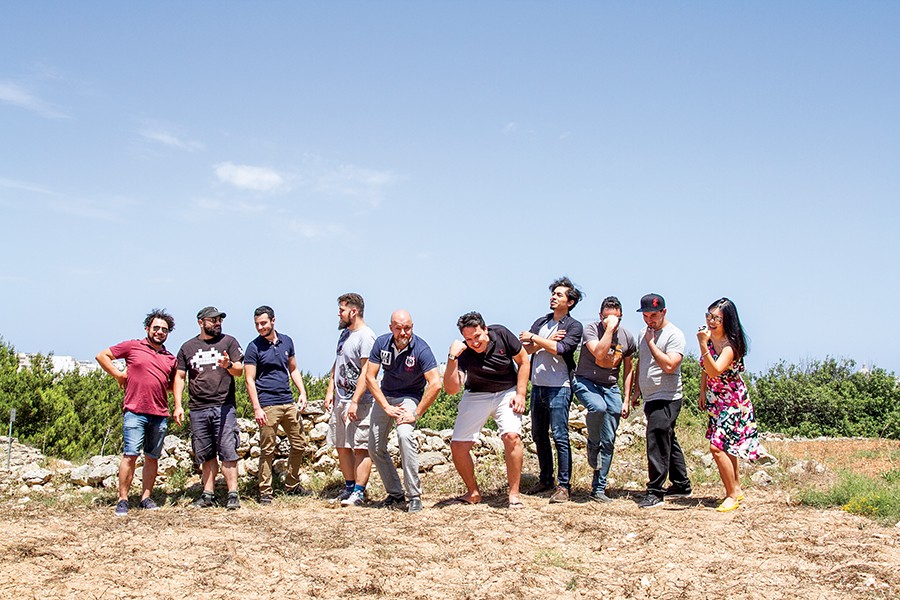
A game of political and military tactics with elements of espionage, Conflict of Nations requires real-world diplomacy skills to move up in the world. Unlike most other strategy games, it takes place right here on Earth, making use of Google Maps to make the game truly global.
Bringing their dream team to life was a challenge. ‘Finding talent back then wasn’t the easiest thing,’ says Dotschuweit. But their perseverance has seen them build a close-knit team who have all contributed to Dorado’s success.
The quest for perfection is a common theme in Dorado’s story. The perfect team, the perfect platform, the perfect game. Their commitment to giving players the best possible experience is a testament to their investment in their projects. Taking the time to get the right team together has proved to be one of the many reasons for Dorado’s fast climb up the games industry ladder. Another was getting their game out quickly to get fan feedback as soon as possible. The Stillfront platform restricts them somewhat in their design, as it wasn’t made specifically for Dorado, by Dorado, but it has reduced their workload massively, allowing them to get Conflict of Nations launch-ready in a fraction of the time. Identifying and taking advantage of opportunities has also been key to their quick rise.
Many Lessons Learnt
In the crowded world of online games, Dorado games has skillfully managed to carve out its place. Real-time negotiations and political tactics in Conflict of Nations are the stand-out features for fans who enjoy the long timescales and mental strategy involved. With this victory under their belt, we’ll soon see more from Dorado. They have plans to develop another game this year.
With years of experience in the industry, Dotschuweit has some advice for any future gaming entrepreneurs. ‘Get it out fast and get feedback. You can always improve it later.’ He notes the success of game jams in turning ideas into businesses and urges people to get involved. So, what are you waiting for?
Author: Dawn Gillies
Tenor Joseph Calleja to open start-up conference
Start-ups to change a country. Lars Lorenz meets TAKEOFF Business Incubator manager Andy Linnas to find out more.
Start-up companies have evolved from being nice to have into a must have. Traditional business models cannot match their capacity to advance into uncharted territory and risk taking abilities. Banking, media, telecommunication, and manufacturing are only a few examples that have changed heavily since the start-up culture exploded. The rapid change has uncovered major challenges. Networks are lacking, allowing for no easy way to collaborate or share ideas, which is key for young start-ups to succeed. The gap between small businesses and established companies is undesirable to sustain a healthy economy.
 The ZEST conference offers a unique opportunity for entrepreneurs, managers, students, and those interested in business to chat and share knowledge. The two-day event is organised by the Malta Communication Authority in collaboration with the TAKEOFF Business Incubator (University of Malta). Armed with their past experience the team invited more than 34 different speakers. Contrary to other events, ZEST throws excessive formalities out of the window and focuses on creating an enjoyable atmosphere instead.
The ZEST conference offers a unique opportunity for entrepreneurs, managers, students, and those interested in business to chat and share knowledge. The two-day event is organised by the Malta Communication Authority in collaboration with the TAKEOFF Business Incubator (University of Malta). Armed with their past experience the team invited more than 34 different speakers. Contrary to other events, ZEST throws excessive formalities out of the window and focuses on creating an enjoyable atmosphere instead.
The venue, Westin Dragonara Resort’s Conference Centre, is outfitted with a tech demo space, piazza, and co-working area. The setup encourages chats in breaks and between talks to share ideas and encourage participants to start working on their next big project. ‘ZEST tries to be an event not just for techies. It caterers to everyone’s interest,’ says Andy Linnas. Their unusual approach is clear: the famous tenor Joseph Calleja is opening the conference to talk about the classical music and opera industry.
Malta stands to gain by opening up internationally. The Islands can show what it has to offer, while local businesses can obtain fresh inspiration from abroad. Even established companies can benefit immensely, since they need start-ups to innovate. Conquering emerging markets quickly is essential to staying competitive, but big business cannot adapt that quickly. They need start-ups to go into these niches for them, and in turn large corporations need to provide the necessary resources to do so.
‘If businesses don’t prepare and become flexible and open to change, many may lose out on this revolution.’
Linnas experienced the possible impact of such events first hand during Latitude59, a big start-up conference in Estonia. It is now in its 9th year, but beforehand Estonia hardly had a start-up culture. Today the landscape has changed. Whole parts of the city have been refurbished into modern areas filled with restaurants, office space, and apartments, ready for people from all around the world to move in. Having that international talent intertwining with the Estonian community allowed start-ups to raise over €100 million of investments that created thousands of jobs. This movement placed Estonia on the map. ‘I believe society will always benefit from startup culture and we can make this happen in Malta,’ Linnas envisions.
ZEST is the first step in that direction. It will be happening from 27–28 June at Westin Dragonara Resort, St. Julian’s. Prices start at €149, while university staff and students are being offered special rates. For more information visit their website or contact ZEST directly.
Disrupting the online shopping business model: Student Alert!
Want to buy an iPad, but not pay for it? DiscountIF launched in July out of TAKEOFF (the University of Malta start-up business incubator) and they might let you do just that, with a twist.
Bridging the Gap
My career has taken me from industry to research, with a 3-year stint as a business consultant, and EU and local fund evaluator for R&D projects. Now I am back at university managing the consultancy, laboratory services, and training business within the Malta University Consulting Ltd (MUC). The University of Malta (UoM) encourages its staff to engage in activities like these through the MUC. Through this article I hope to encourage UoM staff and outside entities to meet us to talk about their opportunities.
The MUC is one of the subsidiary companies of the UoM that we are revamping. Our new office is located on Campus in the same building as the Knowledge Transfer Office and the Business Incubator TakeOff. Our doors are always open for both academic and technical staff, as well as industry and public entities.
Having carried out research at the UoM and visited foreign research organisations, I have witnessed the UoM develop into a hub of knowledge, resources, and excellence competitive with research institutes abroad. Staff members have expertise in a wide range of areas and can offer technical, educational, business, and scientific advice. Expertise ranges from environment and energy, to sciences, education, engineering, ICT, finance, health sciences, and other areas. The quality of the work is highly professional and competes very well with international levels.
The MUC’s role is to facilitate staff by taking care of the administrative, financial, legal and marketing issues related to networking with industry, allowing them to do what they are best at: deliver the expertise efficiently. Staff and entities are given support to find opportunities and set up teams of experts when projects are multidisciplinary. Projects are managed from their inception to closure — from the preparation of proposals and submission of quotes to chasing deliverables and deadlines. The MUC helps with contract negotiation and legal document preparation for the necessary agreements. It provides insurance coverage and manages the issuing of invoices, and securing and processing payments.
Over the past nine months, with my new role at the MUC, we have been working with a number of local public entities and SMEs (Small to Medium Enterprises) on a number of projects. We have worked on small one-off services that require biological, physical, mechanical, and electrical laboratory tests and larger longer-term projects such as chemical tests with the pharmaceutical industry. Contract research and consultancy projects are generally bigger projects involving teams of experts. We have been involved in projects in the telecommunications, ICT, education, renewable energy, and electronics industries. We also organise Continuous Professional Development (CPD) courses such as digital gaming, Horizon 2020 EU funding, and e-marketing.
We can do much more than we are doing. Our vision is to keep growing slowly but steadily involving other members of staff and other entities. Do contact us — our doors are always open.
Dr Ing. Alexia Pace Kiomall can be contacted on alexia.pacekiomall@muhc.com.mt or 2340 8903



